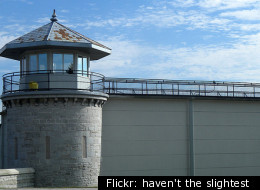 Oscar-winning filmmaker, best-selling author,and provocateur laureate Michael Moore joins us for the hour. One of the world’s most acclaimed — and notorious — independent filmmakers and rabble-rousers, his documentary films include Roger and Me; Bowling for Columbine for which he won the Academy Award, Fahrenheit 9/11, SICKO; and Capitalism: A Love Story. In the first part of our interview, Moore talks about the growing "Occupy Wall Street" protests in Lower Manhattan, which he visited on Monday night. "This is literally an uprising of people who have had it," Moore says. "It has already started to spread across the country in other cities. It will continue to spread. ... It will be tens of thousands and hundreds of thousands of people ... Their work ahead is not as difficult as other movements in the past ... The majority of Americans are really upset at Wall Street ... So you have already got an army of Americans who are just waiting for somebody to do something, and something has started."
Oscar-winning filmmaker, best-selling author,and provocateur laureate Michael Moore joins us for the hour. One of the world’s most acclaimed — and notorious — independent filmmakers and rabble-rousers, his documentary films include Roger and Me; Bowling for Columbine for which he won the Academy Award, Fahrenheit 9/11, SICKO; and Capitalism: A Love Story. In the first part of our interview, Moore talks about the growing "Occupy Wall Street" protests in Lower Manhattan, which he visited on Monday night. "This is literally an uprising of people who have had it," Moore says. "It has already started to spread across the country in other cities. It will continue to spread. ... It will be tens of thousands and hundreds of thousands of people ... Their work ahead is not as difficult as other movements in the past ... The majority of Americans are really upset at Wall Street ... So you have already got an army of Americans who are just waiting for somebody to do something, and something has started."Video
Source: Democracy Now!














